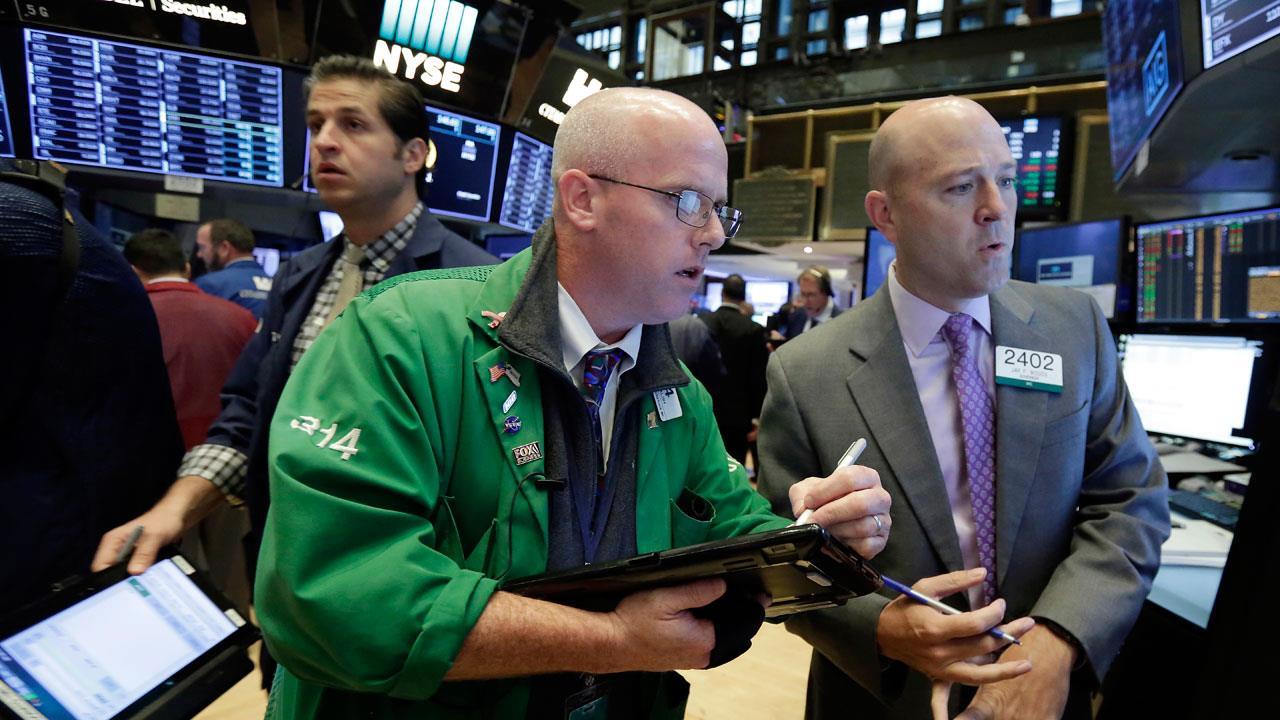Dow dives 724 points as Trump's China tariffs sink in
U.S. stocks suffered heavy losses Thursday amid a day of sharp volatility after President Donald Trump unveiled his tariffs on China, at the same time he is dealing with the departure of his chief legal eagle John Dowd.
The Dow Jones Industrial Average lost 724.42 points, or 2.93%, slipping to 23,957.89. The S&P 500 dropped 68.24 points, or 2.52%, to 2,643.69. The Nasdaq Composite fell 178.61 points, or 2.43%, to 7,166.68.
With Thursday’s declines, the Dow has retreated 9.99% from its recent high, just shy of the 10% mark that signifies correction territory. Financials led the market lower, falling 3.7% on the day. Industrials and materials were also among the worst-performing sectors in the S&P.
The sell-off came as Trump announced that the U.S. will impose tariffs on China and restrict the transfer of technology to Chinese firms. According to Trump, the tariffs on China could be as high as $60 billion, while United States Trade Representative Robert Lighthizer and the president’s chief trade advisor, Peter Navarro, told reporters in a briefing that they will be $50 billion.
Trump’s decision to levy tariffs on Chinese imports fueled concerns on Wall Street that other nations will retaliate with their own measures targeting U.S. trade. Investors are also weighing the impact on manufacturers and other companies that could be hit with higher costs. The administration recently imposed tariffs on aluminum and steel, although it exempted some nations including Canada and Mexico.
“For companies that sell to China, or indeed any country outside the U.S., the effects are likely to be negative—which is why markets are reacting again,” Brad McMillan, chief investment officer for Commonwealth Financial Network, wrote in a note to clients.
| Ticker | Security | Last | Change | Change % |
|---|---|---|---|---|
| BA | THE BOEING CO. | 243.03 | +6.08 | +2.57% |
| CAT | CATERPILLAR INC. | 725.98 | +47.95 | +7.07% |
| JPM | JPMORGAN CHASE & CO. | 322.35 | +12.34 | +3.98% |
Tariffs were part of a flurry of news out of Washington that roiled the markets. The resignation of Dowd, Trump’s lead lawyer in the Russia investigation, and debate on Capitol Hill over a $1.3 trillion spending bill weighed on the market. Investors also continue to digest the Federal Reserve’s accelerated timetable for interest rate hikes.
While the big decline may be unnerving to investors, according to Sameer Samana, global equity and technical strategist at Wells Fargo Investment Institute, this is the volatility the bank was expecting.
“2017 was unusually calm, and we knew this calm wouldn’t last,” Samana told FOX Business. “Eventually, the markets will go higher, but we will have more volatility.”
The CBOE Volatility Index, which measures price swings in the stock market, jumped 30% to 23.34 in recent trading.
The Fed moved to raise its benchmark interest rate on Wednesday, as expected, while also maintaining its stance for three rate hikes in 2018. However, officials are looking at three more rate hikes in 2019, up from its previous plan to raise rates twice. And investors are betting on a 27% chance that the Fed lifts the federal funds rate in December, which would be the fourth increase in 2018, based on the CME FedWatch Tool.
Samana noted that lingering Fed concerns could also have played into the sell-off on Thursday, noting that “we can’t dismiss that we will have more rate hikes later.”
The yield on the benchmark 10-year Treasury note dropped to 2.832% from 2.901% on Wednesday, its biggest one-day decline in six months.
West Texas Intermediate crude oil settled 1.3% lower at $64.30 a barrel.




















